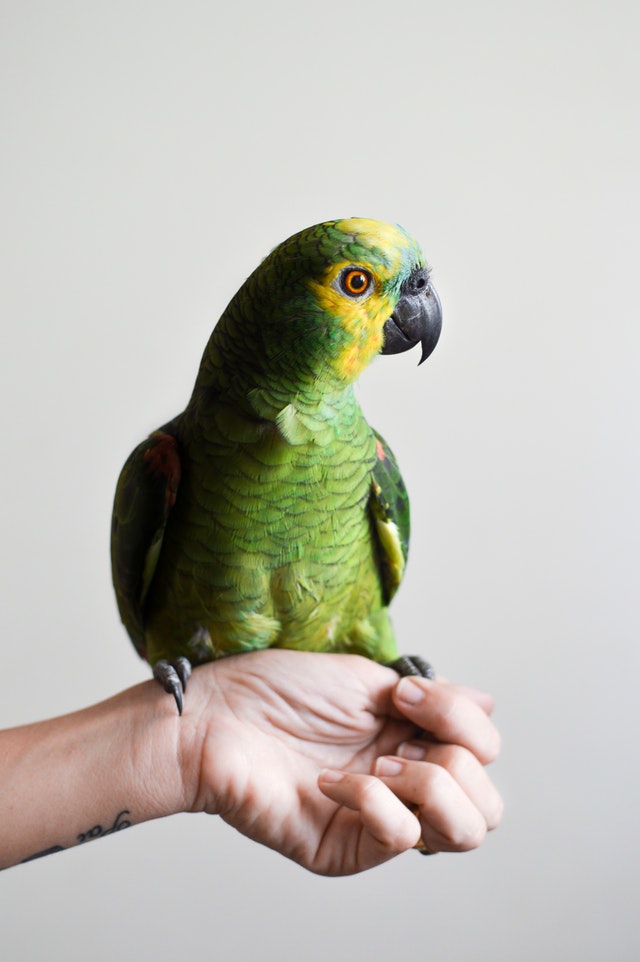It takes a special person to spend 90 minutes individually interviewing research participants about an unknown product and come away with interesting and insightful information. It takes an even more impressive person to be able to do that with 15 participants representing a diverse range of personalities, cultures, and experiences. What is it about those people that makes them such great interviewers? Let’s find out!

1) Genuine interest
Most importantly, great interviewers are genuinely interested to hear what every research participant has to say. Even when the research topic is about a product or service they have never used, will never use, and will never care about, interviewers are truly interested to learn about the participant’s experience with the product, how it does and doesn’t meet their needs, and what they like and don’t like about it. Even by the fifth or tenth interview when some of the information can feel repetitive, their curiosity remains piqued. Every person has a unique life story and personal experience that is worth learning about.
2) Wants to learn
When the research topic is something they know extremely well, great interviewers are careful to not let their own knowledge take over the conversation. Though the interviewer may know that product and their own experience with it extremely well, they also realize they know nothing of the other person’s reality. A great interviewer knows how to compartmentalize their own knowledge and experience so that they can fully immerse themselves in the personal experience of the other person. Their own knowledge may help them maneuver the conversation and probe in certain areas, but it never serves as a reason to cut short a discussion. Great interviewers value clarifying the person’s statements without imposing their own meaning on them.
3) Eternally patient
Interviewers work one to one with a huge range of people. Some are agreeable while others are antagonistic. Some are happy or sad, reserved or outgoing, emotional or logical, serious or lively. Great interviewers have a unique skill for creating deep connections with a wide range of people and personalities. They take the time to figure out each person’s preferred communication style and ensure that person can communicate in the right way for them.

4) Caring
Interviews about skin cream or shoes might seem innocuous and boring but a great interviewer knows that everything comes with a story. A genuinely caring researcher might allow someone to feel comfortable enough to share that it’s the same skin cream their deceased mother would rub on their sun burns when they were a child. Or, that those are the shoes worn when they were unexpectedly fired from the best job they ever had. Great interviewers know how to broach sensitive topics, including seemingly harmless topics, without upsetting people or coercing them to talk about things they really don’t want to talk about. They bring ethics to the situation which creates trust and respect for the interviewer and the research process.
5) Values silence
For some people, silence is uncomfortable and must be filled with words. For other people, silence is necessary to gather and process their thoughts. Rather than filling silence with their own words, a great interviewer knows how to use silence to their advantage, to encourage more expression and more thought-processing. Just because a participant has stopped talking doesn’t mean the interviewer must immediately jump in with another probing question. A great interviewer pauses. Lingers. Waits a few seconds. Gives the person a chance to say what might be on the tip of their tongue. A great interviewer knows not to talk too much and, at the same time, not to talk too little.

6) Probes well
Asking questions isn’t as simple as it sounds. The best questions elicit long answers and are followed up with probing techniques that elicit even longer answers. Some techniques used by great interviewers include:
- Avoiding nonleading questions that provoke a specific response. For instance, instead of asking “Was it easy,” ask “How easy or difficult was it?”
- Turning questions from the participant into probing questions for the participant. For example, if an interviewer is asked, “How does this product work,” they might ask the participant in return, “How do you think it should work?”
- Using the ‘Five Whys.’ When an answer has been given, probe several more times. By the time five probing questions have been asked, the interviewer will probably have a full, in-depth answer.
- Repeating the last few words of the participant’s sentence as a question. This will help them to continue their train of thought and continue speaking.
- Encouraging people to continue speaking by using phrases such as, ‘Tell me more…’ or ‘Interesting…’
7) Speaks clearly
Great interviewers understand that the interview situation can be stressful, particularly for someone who’s never participated in a research interview before or for someone who is trying to communicate in a second language. Questions and comments should be stated clearly, in short sentences, and using simple words that are less likely to be misinterpreted. This is often second nature for great interviewers.
8) Knows the discussion guide
Of course, a great interviewer knows the discussion guide inside and out. To someone being interviewed, it can feel disrespectful, impersonal, and jarring for the interviewer to be constantly reading their notes or shuffling through pages of the discussion guide.  Interviewers must know their research objectives well enough so they can maneuver through a meaningful conversation without missing important components and without making the participant feel like they’re just another lab rat. We often give research participants homework so they can work through their own opinions ahead of time and the interviewer owes that same level of respect to the participant. Great interviewers do their homework. They know their discussion guide.
Interviewers must know their research objectives well enough so they can maneuver through a meaningful conversation without missing important components and without making the participant feel like they’re just another lab rat. We often give research participants homework so they can work through their own opinions ahead of time and the interviewer owes that same level of respect to the participant. Great interviewers do their homework. They know their discussion guide.
Are you ready to become a great interviewer? Here are a few classes from trusted sources that will help you up your game.
► Research Rockstar: Conducting Research Interview: 12 tips for a stress-free process
► Insights Association: Online Qualitative Research Methods
► University of Georgia: Qualitative Market Research
► Marketing Research Society: Other qualitative classes are available in addition to these.
Are you ready to use in-depth interviews for your next market research project?
Please get in touch with us! We can help you figure out whether qualitative interviews would work well to solve your research problem and then help you plan any necessary fieldwork.
You might like to read these:




